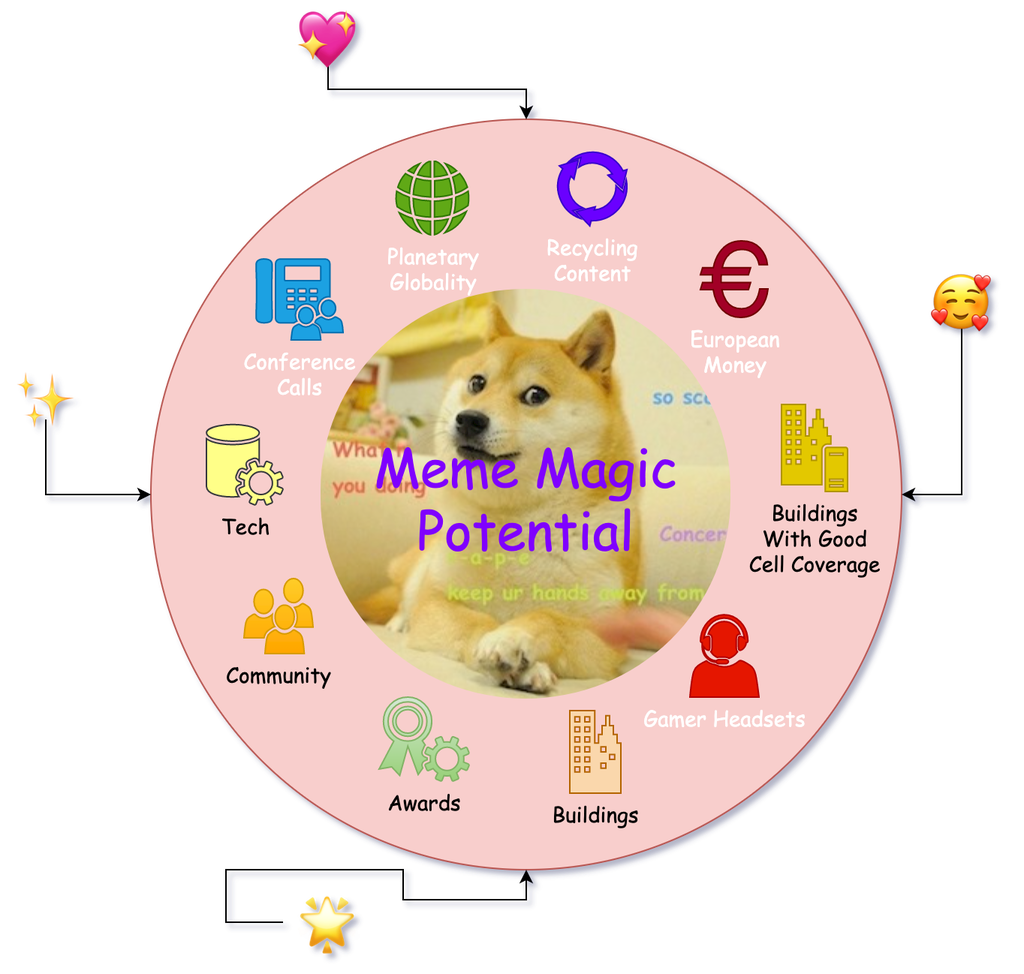Can Memes Save Your Startup?
I’ve noticed a trend amongst startups (particularly those in the financial-ish space) which amounts to some variation of “hey guys, maybe we can get customers if we use memes?”.
This is not dissimilar to the “viral” craze of the early 2010s in startup land, where a number of companies raised mountains of VC cash entirely on some silly app gaining millions of users overnight. One of my favourite examples is the Yo app.
Today, the buzzwords du jour are a little different, but the ideas are mostly the same. Whether you’re selling NFTs or AI, it’s not so much about the product or what value it creates, but rather about whether or not you can attract people to click the buttons on your thing, ideally giving you money in the process.

Can we synthesize meme magic?
The great meme stock craze of 2020-22 has created a new goldrush of startups trying to capitalize on this trend now, too. I won’t name specific ones (because I don’t want to look like an idiot if they happen to ever gain real traction), but I do find it quite amusing that people are still throwing money and dumb ideas simply because they got a bunch of updoots on Reddit (or whichever ad platform).
The bottom line with memes is that most people don’t understand them, and cannot even define them. My preferred definition for memes is that they’re merely a “unit of knowledge”. A meme is not a tangible thing, it’s just an idea that floats through our brains from one person to the next, and the Internet acts like an amplifier.
Can you create a meme factory and churn out memes every day to sell your product? Well, no, not really. That’s called an advertisement, and there are already plenty of ad agencies who do this all day every day. Calling your ad a “meme” doesn’t make a new thing, you’re just doing what people in the marketing biz call…rebranding.
So, as per Betteridge’s law of headlines, no you cannot magically save your startup by trying to put some meme sauce on top of a bad idea. It’s true that some really stupid ideas like NFTs (and I don’t mean the technical definition of an NFT, which is an interesting concept, but rather I’m referring to taking digital images and calling them NFTs and trying to sell them) manage to get lots of traction for a little while through the power of memes, but as soon as you try and utilize that to sell your product, it’s by definition no longer a meme, it’s now an ad.
Memes occur organically in nature, much like genes. Sure, we can alter genes, but once you do so it’s not organic anymore, you’ve just created a GMO ad. Humans are smart, they can quickly detect the difference between GMO ads and legitimate memes, because part of what makes a meme a meme is that it wasn’t created by an ad agency, it just kind of…happened naturally.
Here’s my man Richard Dawkins explaining what a meme is (for those who don’t know, he’s the person who coined the term meme). The definition of “meme” is certainly not “funny image on the Internet”. Memes have existed long before the Internet.
What’s particularly fascinating about the current “meme marketing” trend is how it fundamentally misunderstands what makes memes work in the first place. Memes spread because they tap into shared experiences, emotions, or cultural reference points in a way that feels authentic and relatable. The moment a company tries to engineer this process, it almost inevitably falls flat.
Remember when brands started using “bae” and “on fleek” in their tweets? Or when McDonald’s tried to capitalize on the “Rick and Morty” Szechuan sauce phenomenon? These attempts at meme-jacking often end up as case studies in corporate cringe rather than viral marketing successes.
The real irony is that occasionally, brands do become meme-worthy—but rarely when they’re trying to. Wendy’s Twitter account gained cultural relevance not by forcing memes but by adopting an unexpectedly sassy persona that felt genuine. The “Meanwhile at Amazon” photos of Jeff Bezos’ increasingly muscular appearance became meme fodder organically, not through a calculated campaign.
If there’s any lesson here for startups, it’s this: focus on building something genuinely valuable or interesting. The best “meme marketing” happens when your product or company does something remarkable enough that people naturally want to talk about it, share it, and yes, maybe even meme it.
In the end, trying to manufacture memes to save your struggling startup is like trying to go viral by announcing “I’m going viral!” It fundamentally misunderstands the nature of organic cultural phenomena and the intelligence of your audience. Build something worth talking about instead, and let the internet decide if it’s meme-worthy.